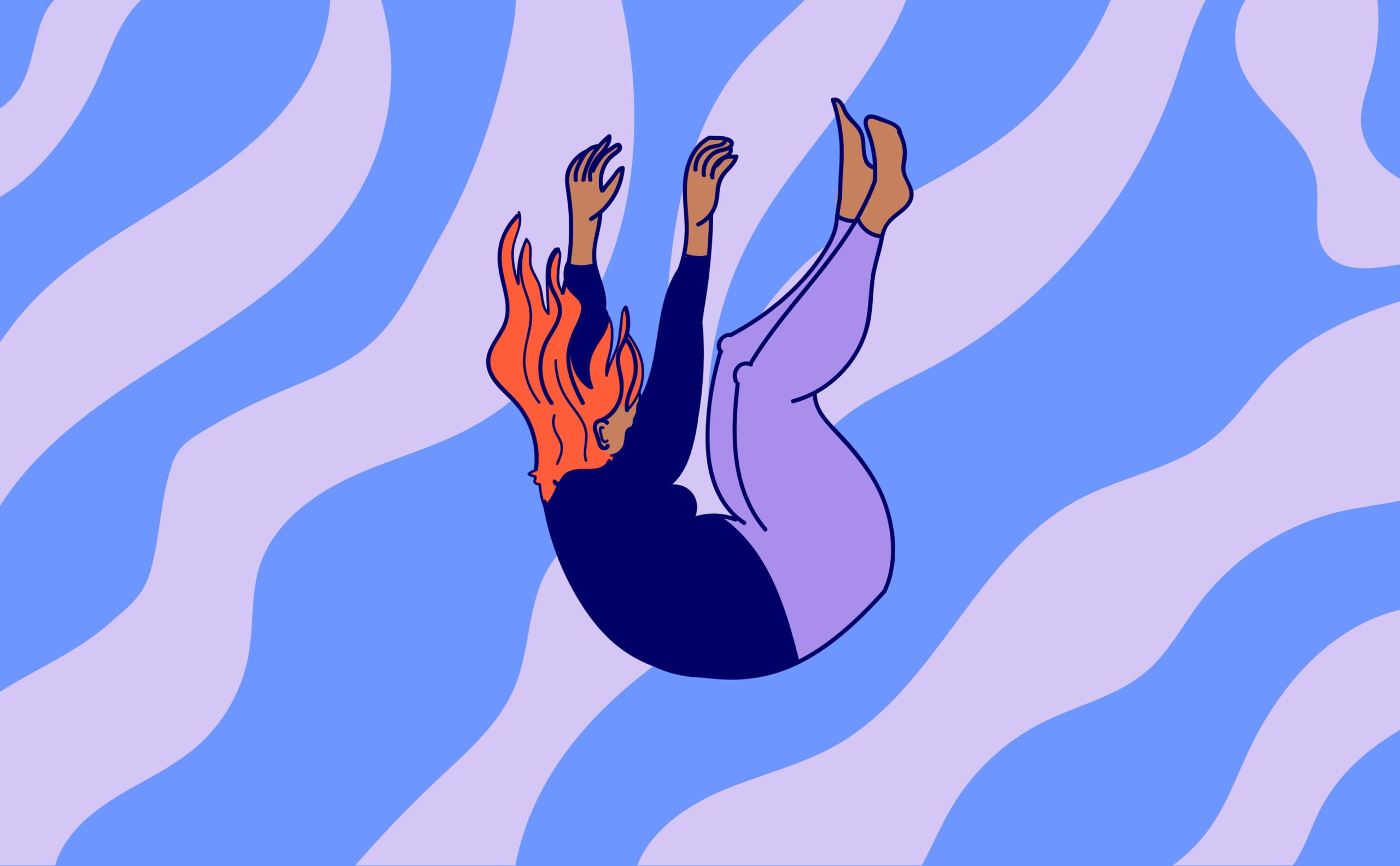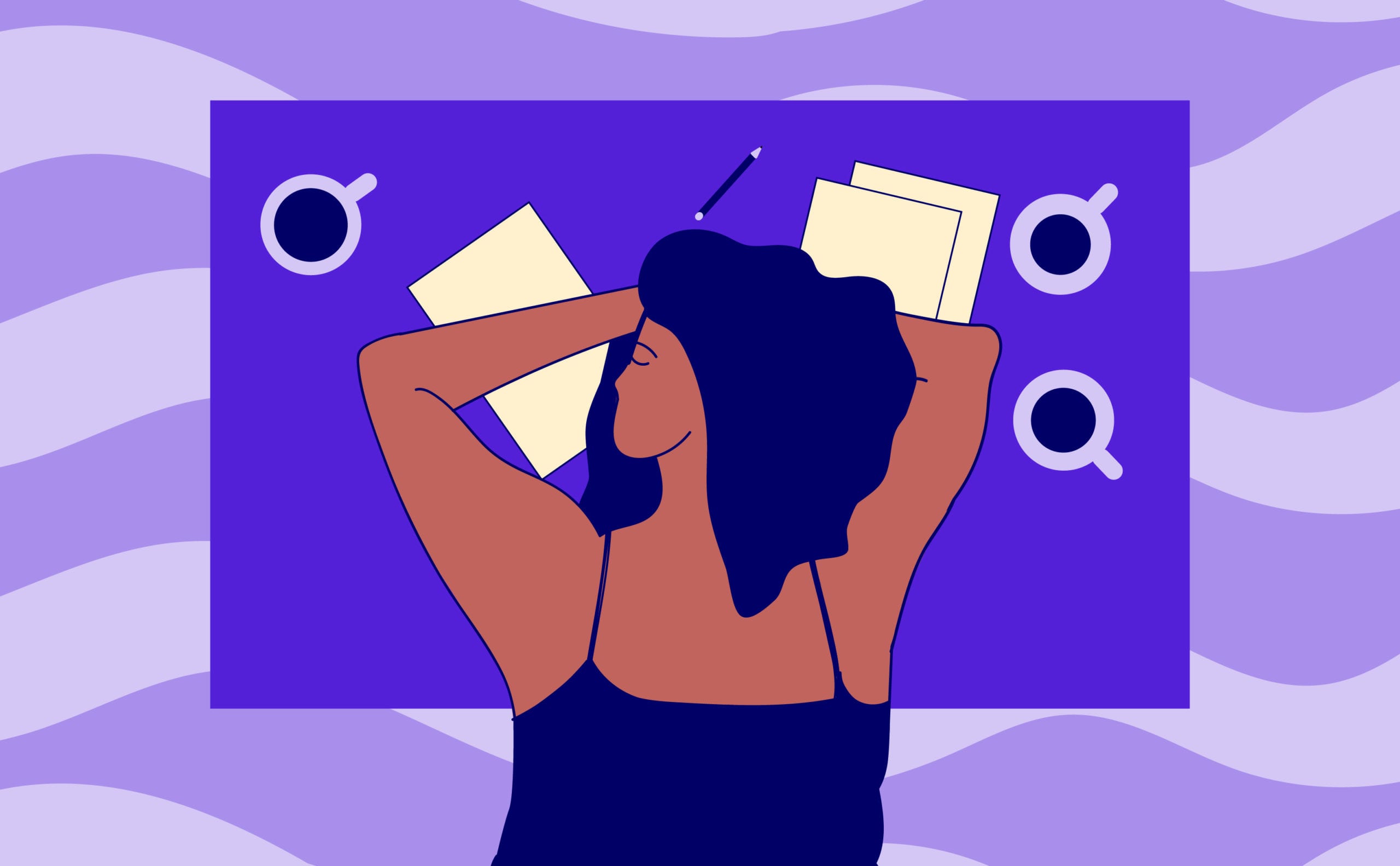As we approach perimenopause and menopause, we’re juggling a lot!
We may be caring for kids or aging parents, busy at work in peak career years, or all of the above. So it’s natural that we’d have a lot on our plates and feel overwhelmed sometimes (or even most of the time). But it’s important to recognize that there are physiological factors at play here as well.
Anxiety, which may (but doesn’t always) go hand-in-hand with depression, is thought to be influenced by fluctuating and declining hormone levels, including:
- Serotonin: the “happy hormone” that stabilizes our mood and fluctuates with age and decreasing estrogen levels
- Estrogen: results in increased serotonin levels and increased serotonin receptors. More serotonin = less anxiety and depression. The relationship between these two hormones is complex though and we are just starting to scratch the surface!
- Progesterone: the “calming hormone” that may also influence GABA
- Gamma-Aminobutyric acid (GABA): a neurotransmitter that produces a calming effect when it binds to its receptors, which may support a reduction in stress, anxiety, and sleeplessness. With lower progesterone levels, GABA’s receptors don’t bind as well, thereby prolonging the stress response and increasing anxiety.
The most common anxiety symptoms are tension, nervousness, panic, and worry, and some may feel physical signs too, like an upset stomach, headaches, racing heart, sweating, etc. Some women may experience panic attacks, which are an extreme version of anxiety, with the inability to think clearly and accompanied by intense physical symptoms like heart palpitations, shortness of breath, even chest pain.
PMS and PMDD
In early perimenopause, mood fluctuations are typically concentrated in the premenstrual period (PMS) while late perimenopause/early postmenopause is marked by more prominent feelings of general anxiety. The risk of menopause-related depression and anxiety is higher for those with a history of PMDD (premenstrual dysphoric disorder, a more serious form of PMS where symptoms are more intense, which affects 5-7% of menstruating women) and postpartum depression.
Hot flashes and anxiety
There is one interesting connection between hot flashes and anxiety. Research has shown that women who experience anxiety are 3-5x more likely to have hot flashes. Another study found that women who experienced anxiety with physical symptoms (upset stomach, racing heart, etc.) had a strong tendency to have hot flashes.
It’s not clear which comes first: anxiety or hot flashes, but we do know there is a link.
Can the cause of anxiety, mood swings, and depression be independent of menopause? Certainly. That’s why it’s imperative to consult your healthcare provider, especially if you’re experiencing intensive, excessive, and persistent worry or fear about everyday situations that’s difficult to control, interferes with your day-to-day life, and/or peaks within minutes (panic attacks). For help finding a psychologist, we recommend the American Psychological Association’s Locator, as well as the National Register.
Dr. Anna Barbieri, MD
Pro tip #1
The Mediterranean diet, especially the low-sugar, insulin-stabilizing version, has earned well-deserved hype for its positive effects on mood and mental health.
Eat more of: whole grains, vegetables, seafood, olive oil, legumes and low-sugar fruits (raspberries, strawberries, blackberries, and kiwis)
Eat less of: high-sugar fruits and alcohol (and because it can disrupt sleep, consider eliminating red wine and sugary mixed drinks altogether)





